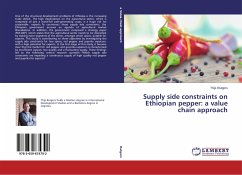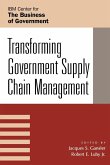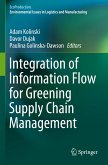One of the structural development problems of Ethiopia is the increasing trade deficit. The high dependence on the agricultural sector, which is comprised of just a hand-full cash-generating crops, is a huge risk for sustainable exports. To counteract these supply side constraints, the Ethiopian government pursues an agenda of agricultural market liberalisation. In addition, the government composed a strategy paper (PAS-DEP), which states that the agricultural sector needs to be diversified by making more segments of the sector, amongst which spices, suitable for exports. This study is contributing to these objectives by investigating the supply side constraints for two spices, red pepper and paprika capsicum, with a high potential for exports. In the first stage of this study, it became clear that the market for red pepper and pa-prika capsicum is characterised by insufficient output, low quality and a fluctuating supply. These findings led to the following central research question: "Which supply side constraints are impeding a continuous supply of high quality red pepper and paprika for exports?
Bitte wählen Sie Ihr Anliegen aus.
Rechnungen
Retourenschein anfordern
Bestellstatus
Storno








